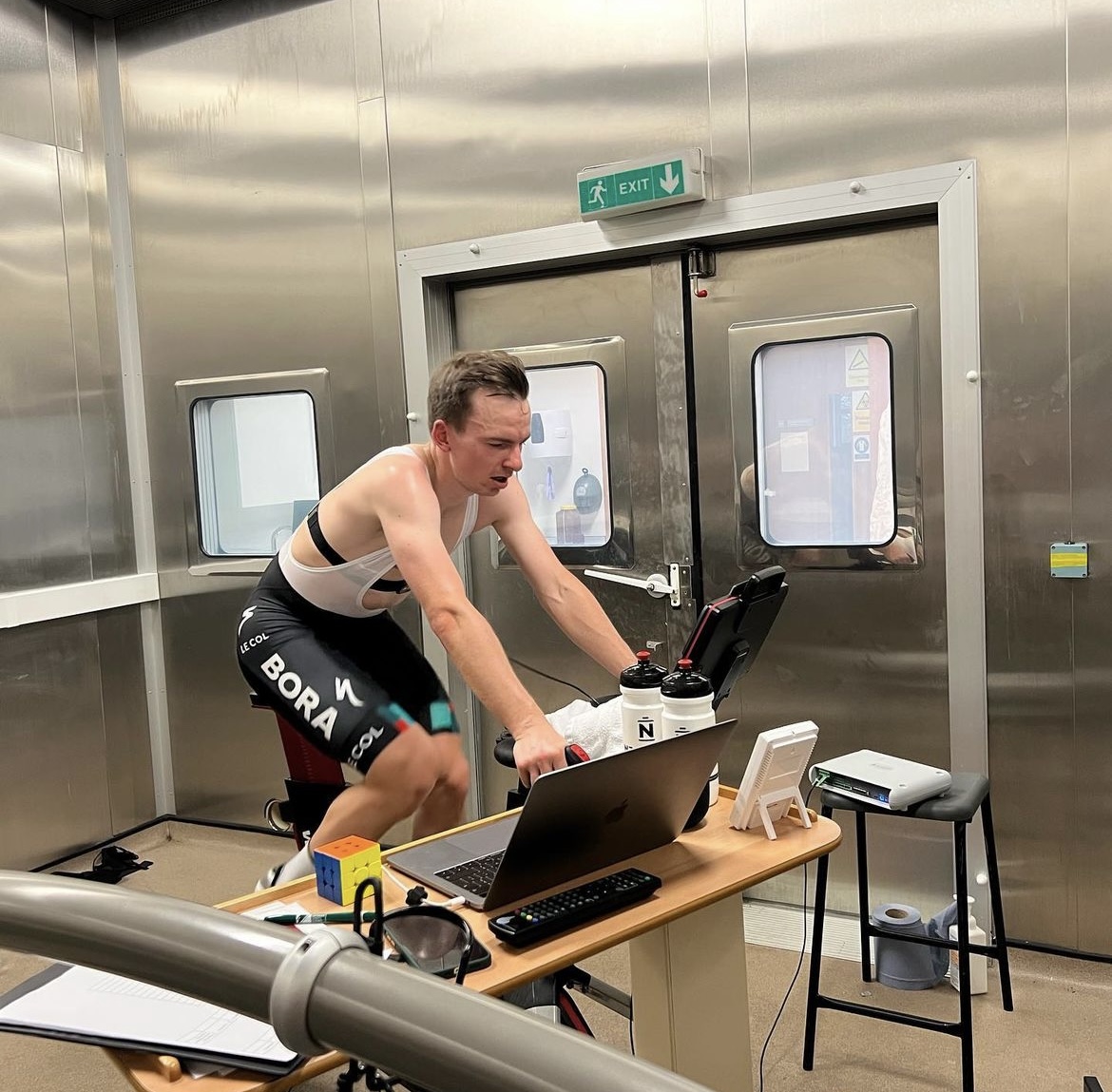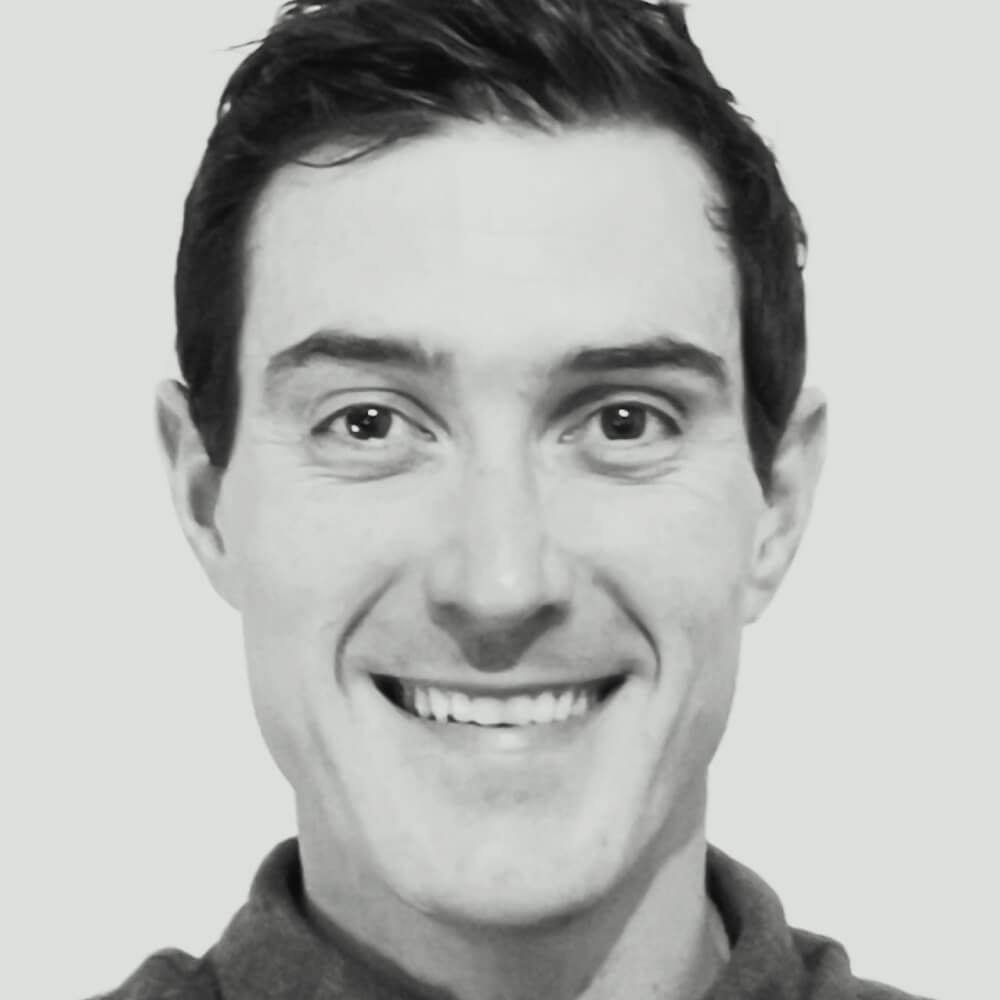This week’s Performance Process is the latest in our series delving into how and why World Tour racing is getting so much faster. The first of our deep dive episodes on the specifics of how racing is getting faster, Dr Tim Podlogar is our guest to discuss all things “high-carb.”
The jokingly self-professed Mr Carbohydrate, Podlogar is an exercise physiologist at Birmingham University focusing on sports nutrition, exercise metabolism, environmental physiology and endurance performance. He is a former rower turned 5.5 w/KG cyclist and head nutritionist at Bora-Hansgrohe WorldTour team.
Podlogar has tested low-carb diets in the past and is now a high-carb advocate. In this episode we discuss the benefits of a high-carb approach, why the simple carbohydrate is having its day all over again, how to fuel your own rides, and why we still need to consider supply and demand. Podlogar even gives us a grams of carbohydrate per kilogram of body weight for various breakfast timing options.
The Performance Process is a members-only podcast from Escape Collective. If you’re not a member, you’ll need to become one (insider or supporter level both apply – monthly or annual both apply) to listen to the full show. There is, however, a preview of this episode right here …
If you are a member already, you can subscribe to your personal member-only podcast feed. All the details regarding the one-time subscription sign up are available on this page for signed-in members.
Time stamps for the episode:
08:00 – Changing from low carb to high carb
16:00 – Advancements in nutrition products
17:40 – Doing your homework
25:00 – Pros v amateurs
26:32 – Post ride window
27:51 – Fuel the activity
32:30 – All about the balance
35:10 – How many crabs and when
38:04 – Why you are always hungry post ride
47:10 – How to fuel for early morning rides and races
Highlights
On the current high-carb trend:
It’s kind of funny. It’s really interesting, because I’m not really surprised that carbohydrates are still like the the most important fuel for the riders. If you look at the evidence from the 90s, or even 80s, we clearly see how important carbohydrates are for performance. And looking at those old studies, we could come up with pretty much the same recommendations that we give the riders these days.
I kind of believe that in the old days, if you ask the proper researchers, they would pretty much come up with the same recommendations. But in the recent years, this low carb community kind of became very prominent and very like influential even on the professional peloton. So now that we are coming back to a high carbohydrate diet, suddenly everyone is talking about this again, although it’s basically repeating what has been said years and years ago,
On if carbs are much accessible now:
One of the things being that the products the riders are using in the past were not designed for really high carbohydrate intake. I think it was pretty much Maurten who were the first one that was actually like, they came up with like, the drink with a lot of carbohydrates. And then SIS copied that drink, and then every other brand pretty much followed suit. And now we have actually the product that that allow you to ingest easily 90 grams or even more per hour, whereas in the past, even if you were able to eat that much, it just wouldn’t be effective.
But I think I still believe that, like, the most important is still like what to do before the races like the day before the evening, before the morning before, I think these carbohydrates are still the most important in terms of fueling the riders.
On timing:
If the recovery time is less than eight hours, then the timing is really important. If it’s more than eight hours, then it doesn’t really matter. So if you’re like having a race date, the next day doesn’t really matter if you have the carbohydrates abit late. Whereas if you were racing like yeah, the next morning, then it really is important. And in cyclists, even though it’s probably like more than eight hours, the problem is that you have for hours or five hours before going to bed and then three hours the next morning, which is kind of your very limited amount of time you have to actually replenish glycogen stores
On how high is “high-carb”:
It really depends on the amount of training and the intensity on the training sessions. So it’s all about like replacing or being in energy balance at the end of the day. And like looking at the riders, some riders would be used to really high carbohydrate intake during the ride, and then off the bike as well. And some would, from culture, like differences have more fat in diet, so their carbohydrate intake would be a bit lower, yet the performance would be just as good.
But as a general rule, I usually recommend like just after finishing a training session, it’s like one to 1.5 grams per kilogram of body mass of carbohydrates straight after. If it’s a big training day, like for professional riders like riding four or more hours a day, then it will be probably around two additional meals with like two grammes per kilo. So around like, 140 grams of carbs for lunch or dinner.
But that’s not always possible, or depends on how many snacks you have, and what type of training you do intervals or intensity as this really depends. And I think the most important thing is like, you need to have a look on what is coming the next day, what you’re getting ready for. If it’s interval training, Vo2max efforts, then you actually want to have higher glycogen stores. And then perhaps, the evening before, you will go with simple carbs, very little fat and relatively low in protein as well, for the sake of being an energy balance, but having as many carbohydrates as possible. Whereas before an endurance ride like four hours then you can easily have a bit more like healthy fats and a bit less carbohydrates, especially if you’re trying to lose body mass, for instance.
There are plenty more highlights in the full podcast with Dr Tim Podlogar. We also have plenty more deep dives into the hows and whys of faster racing on the way. Until next time, “trust the process.”
What did you think of this story?

